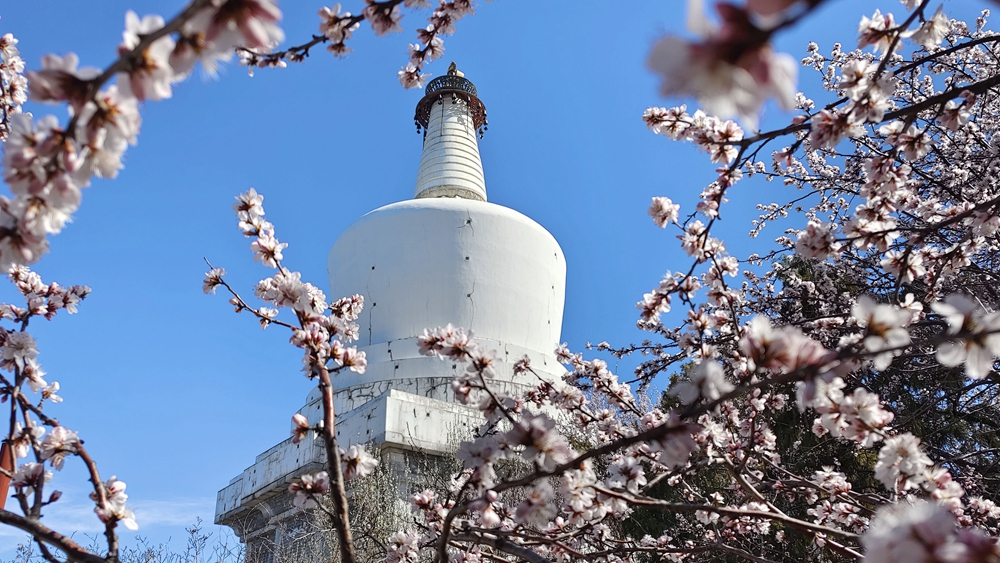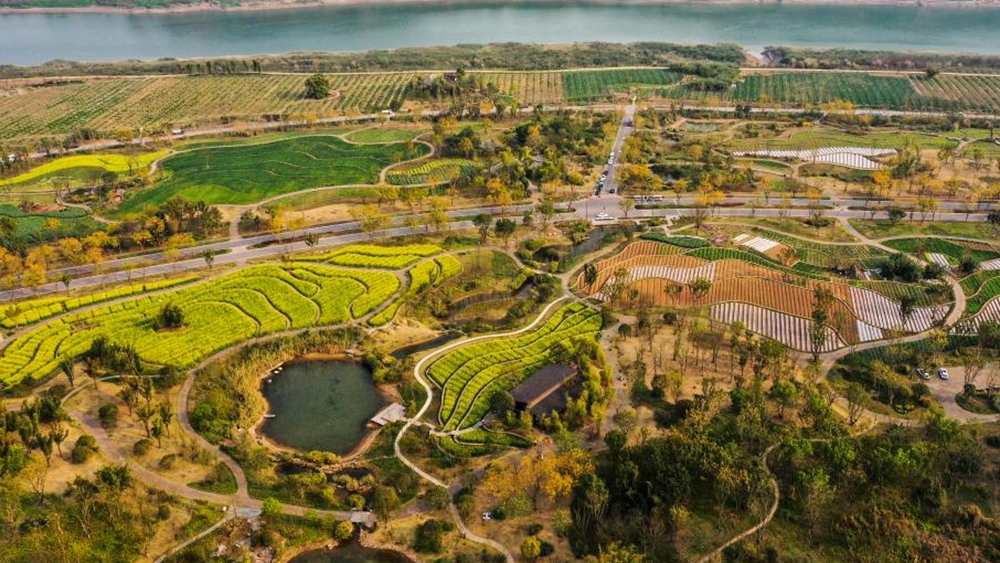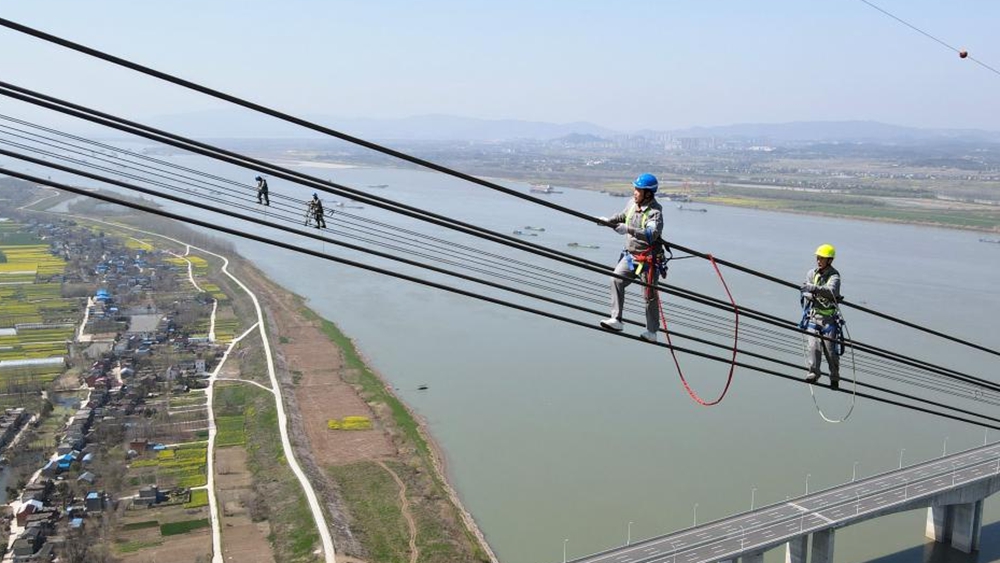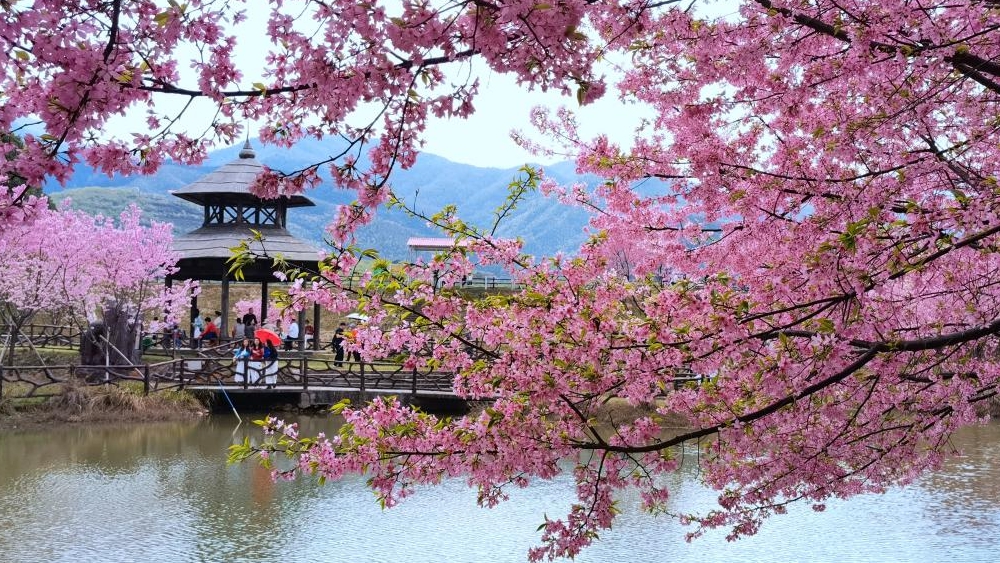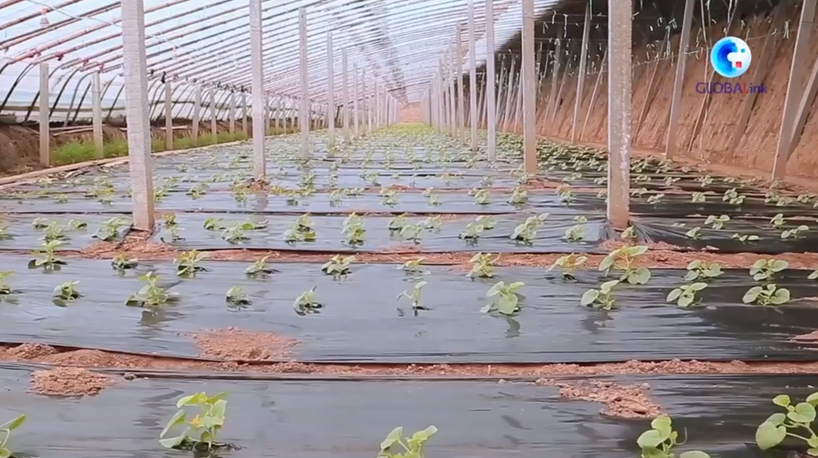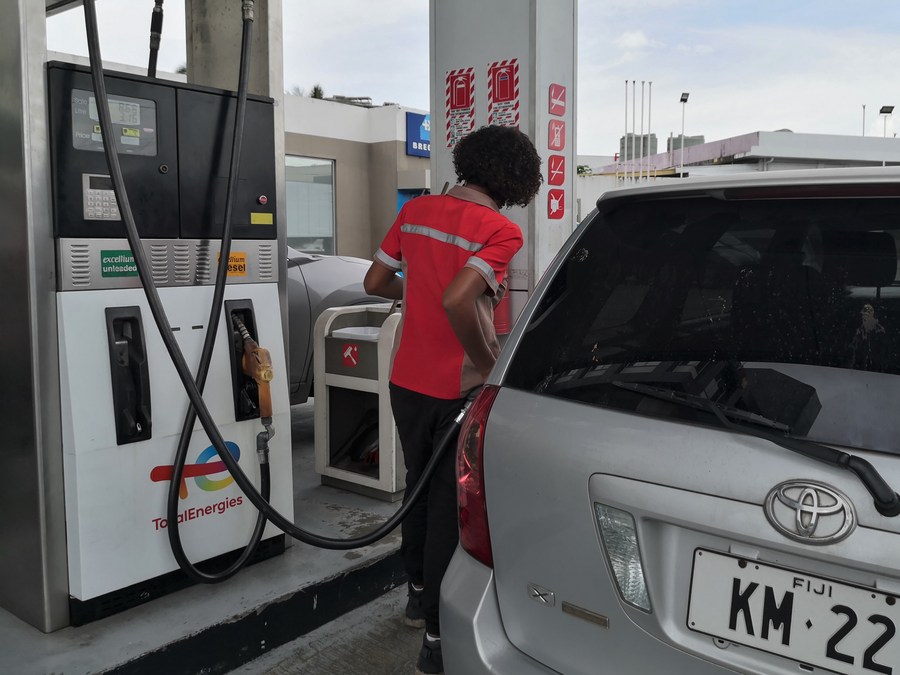
A woman works at an oil station in Suva, Fiji, March 17, 2022. (Xinhua/Zhang Yongxing)
Officials said more price hikes are expected in Fiji if the conflict between Russia and Ukraine escalates.
SUVA, March 18 (Xinhua) -- South Pacific island nations such as Fiji are far away from Russia and Ukraine, yet they have been significantly affected by the conflict between the two countries with the hikes in food and fuel prices.
The Food and Agriculture Organization of the United Nations (FAO) has warned recently that the Russia-Ukraine conflict poses new threats to global food security. With food and feed prices already at a high, the FAO said they could rise by a further 8-22 percent.
As an island nation with a population of around 900,000, Fiji has to import most of its food such as wheat flour and rice from foreign countries every year. Fiji's Minister for Economy Aiyaz Sayed-Khaiyum warned that more price hikes are likely in Fiji if the conflict between Russia and Ukraine escalates.
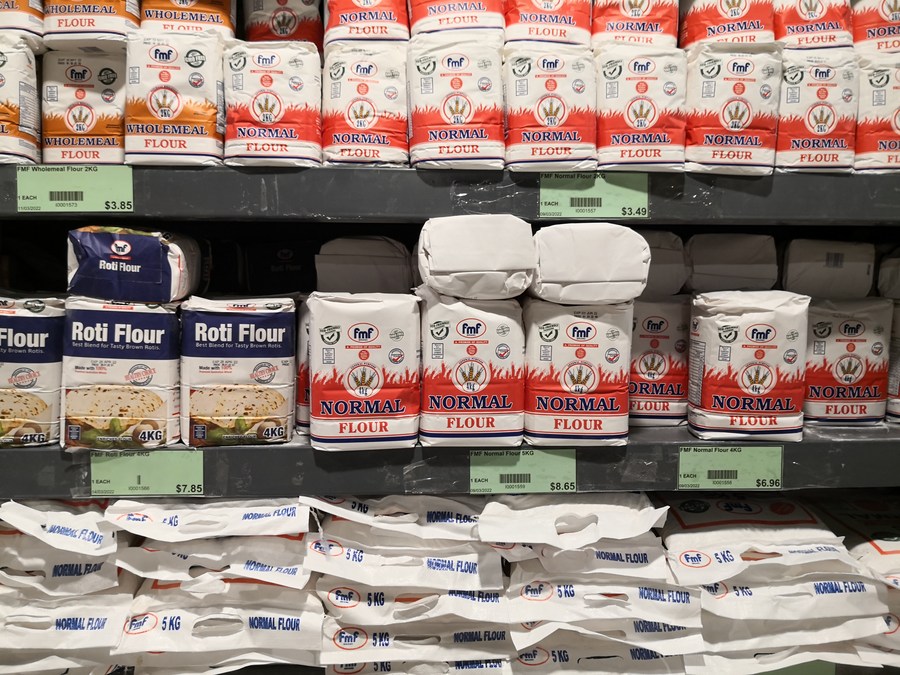
Photo taken by phone shows the flour rack at a supermarket in Suva, Fiji, March 16, 2022. (Xinhua/Zhang Yongxing)
According to the Fijian Competition and Consumer Commission (FCCC), the retail price of a 10 kg bag of normal flour in Fiji surged to 17.10 Fijian dollars (about 8.06 U.S. dollars) from 10 Fijian dollars (about 4.71 U.S. dollars) about 1.5 years ago. Petrol prices also increased by over 10 percent.
The FCCC pointed out that Fiji is a price taker and must respond to the changes in the world market for domestic markets to remain feasible.
Fiji's permanent secretary for commerce and trade Shaheen Ali said that global sanctions on energy giant Russia have seen the price of oil skyrocket, meaning more fuel price hikes are on the horizon -- but that's not all of it.
"The cost of fuel and the cost of goods and services include further impediments to sea freight and air transportation," he said.
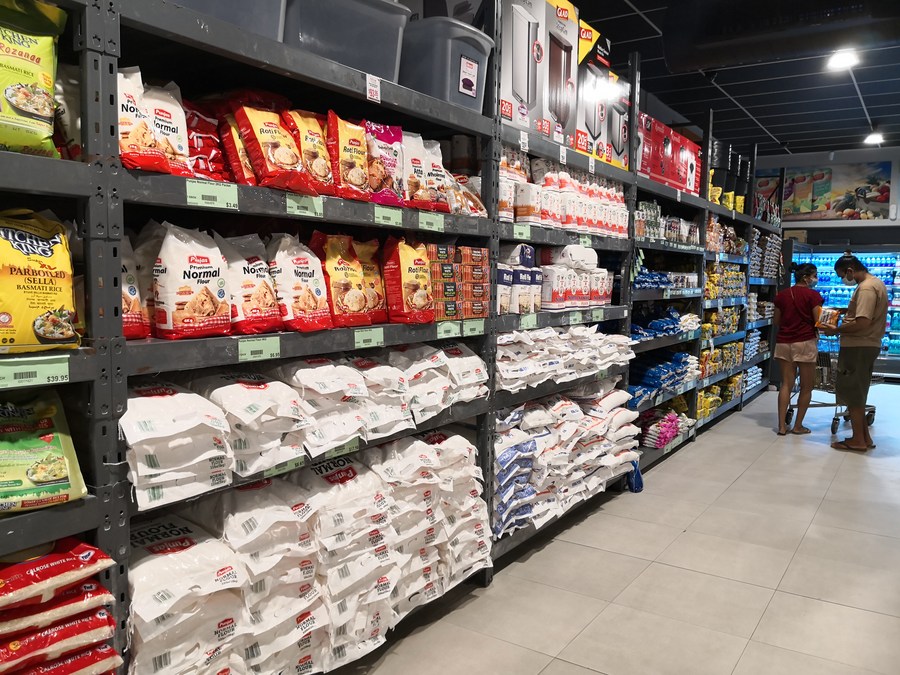
Photo taken by phone shows the flour rack at a supermarket in Suva, Fiji, March 16, 2022. (Xinhua/Zhang Yongxing)
A Chinese businessman, who is operating a grocery in downtown Suva, the capital of Fiji, has also felt the pinch of the increased prices. He told Xinhua on Wednesday that the price of goods in his shop will have to increase as a result of the increasing cost of sea freight transportation.
Neelesh Gounder, a senior lecturer in economics from the University of the South Pacific (USP), said that the conflict presents risks of inflationary pressures and external sector risks to the Fijian economy.
For Fiji, any rise in global crude oil prices especially through rise in average prices of refined products at the Singapore trading market poses inflationary risks through an increase in petrol and diesel prices, he added.
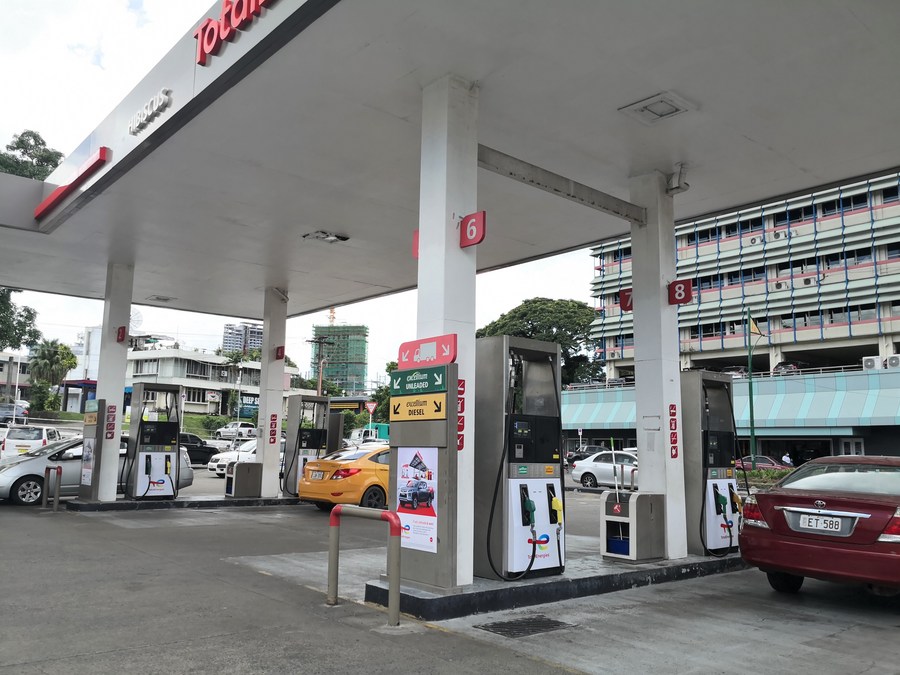
Photo taken by phone shows an oil station in Suva, Fiji, March 16, 2022. (Xinhua/Zhang Yongxing)
Not only Fiji, but also other island nations such as Samoa and Tonga will not be spared from inflation.
In Samoa, Prime Minister Fiame Naomi Mata'afa has said that whenever there are large-scale conflicts around the world, the most immediate effect is on fuel prices and supplies from that part of the world, and the fuel prices in Samoa are expected to rise in the coming months.
In Tonga, the Tonga Competent Authority has announced that the price of petrol, kerosene and diesel will increase from Friday. ■


